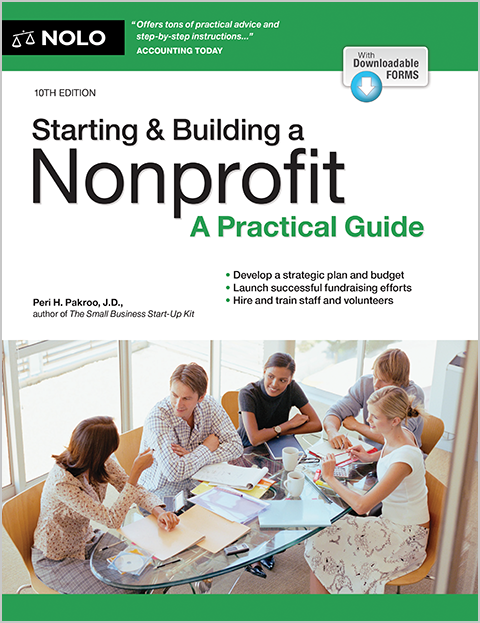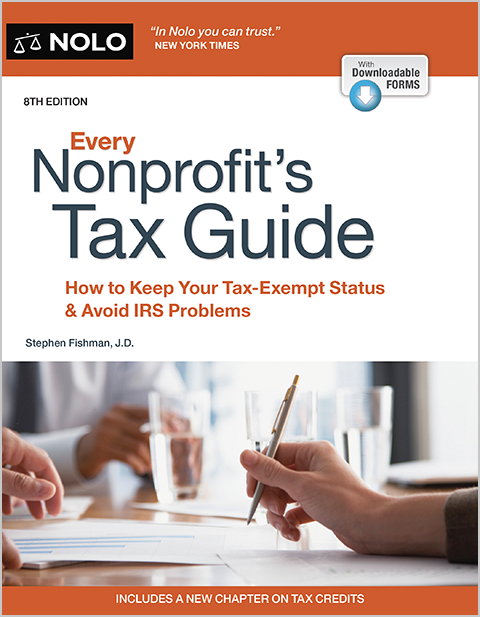If your nonprofit is fundraising, does business, or owns property in California, it likely has to register with the California Attorney General's Registry of Charitable Trusts.
If your nonprofit is doing fundraising in California, does business in California, or owns property in the state, it likely has to register with the California Attorney General's Registry of Charitable Trusts and renew the registration each year.
When Registration Is Required
California's charitable solicitations law is different from most states. It provides that a nonprofit must register with the Attorney General's Registry of Charitable Trusts within 30 days after it initially receives any money or property for charitable purposes. Thus, as far as nonprofits based in California are concerned, the registration requirement is triggered by the receipt of money or property in California, as opposed to making a charitable solicitation within the state. Most other states require nonprofits to register before making a charitable solicitation.
Out-of-state charitable corporations must register in California if they hold property in California for charitable purposes or do business in California. Doing business in California includes soliciting donations in California by mail, by advertisements in publications, or by any other means from outside of California. Other examples of doing business in California include:
- holding meetings of the board of directors or corporate members in California
- maintaining an office in California
- having officers or employees who perform work in California, or
- conducting charitable programs in California.
If an out-of-state nonprofit's sole contact with California is limited to (1) making grants to people, programs, or charitable organizations located in California, or (2) maintaining financial accounts or investments at an office of a financial institution located in California, it is not considered to be doing business in California and need not register.
Exemptions From Registration
California's exemptions from registration are quite limited. Unlike most states, there is no exemption for very small charities--thus, even charities that raise little or no money must register. California only exempts:
- nonprofit religious organizations
- nonprofit educational institutions
- nonprofit hospitals
- licensed health care service plans
- federal or state or agencies
- religious corporations holding property for religious purposes,
- political committees reporting to the California Secretary of State, and
- cemetery corporations.
It is not necessary to apply for an exemption.
How to Register
Registering requires your nonprofit to file the state's application form (Form CT-1 Initial Registration Form) with the California Attorney General's Office Registry of Charitable Trusts and pay a filing fee. Copies of the following documents must be included with your application:
- articles of incorporation and all amendments
- bylaws
- IRS Form 1023, if submitted to IRS
- IRS determination letter, if received from IRS.
Renewal Registration
All registrations must be renewed annually, even those for small nonprofits. The renewal is due 4 1/2 months after the close of the nonprofit's tax year. If you use a calendar year, the due date is April 15th. This is the same date that IRS Form 990 and 990-EZ must be filed with the IRS. If your nonprofit obtains an extension of time to file its annual IRS Form 990, 990-EZ, or 990-PF, that extension will be honored by the Registry of Charitable Trusts for purposes of filing the renewal registration and accompanying IRS forms.
To renew, file the state Annual Registration Renewal Fee Report (RRF-1), available on the state website.
All registered nonprofits with gross annual revenues of $2 million or more must prepare annual financial statements audited by an independent certified public accountant (CPA).
What Happens If Your Nonprofit Does Not Register
There can be harsh consequences if your nonprofit fails to file the annual renewal after being requested to do so by the Attorney General. Namely:
- the California Franchise Tax Board will be notified to disallow your nonprofit's state tax exemption
- your nonprofit will be billed $800 plus interest by the Franchise Tax Board, which represents the minimum tax penalty, and
- late fees of $25 will be imposed by the Registry of Charitable Trusts for each month or partial month for which the reports are delinquent.
Moreover, your nonprofit's directors, trustees, officers, and return preparers responsible for the failure to timely file these reports are personally liable for payment of all late fees and penalties. Charitable assets cannot be used to pay them. In other words, they must pay them out of their own pockets!
Further Information
The California Attorney General has a section on its website dealing with nonprofit registration. This is one of the most extensive and helpful state nonprofit registration websites with forms, FAQs, links to state publications, and other information.
For detailed guidance on all aspects of the state fundraising registration process, including each state's rules on renewals and financial reporting and links to all the forms you need, refer to Nonprofit Fundraising Registration: Nolo's State-by-State Digital Guide (updated quarterly).



